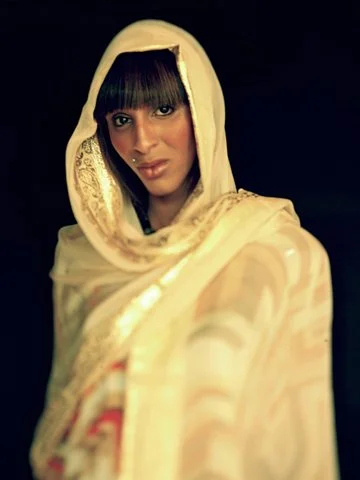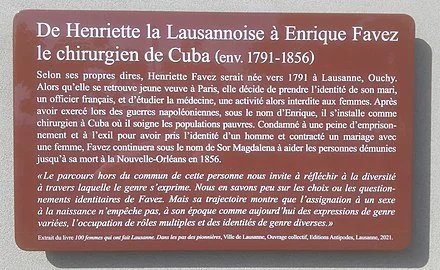Photo credit: Abdi Osman
“Our sisters are all dying, it scares me” – Sumaya Dalmar
Far too frequently and far too easily, we read or hear about the life of an LGBTQ person cut short, often occurring simply because that individual chose to exist as publicly queer. This is particularly true for trans and gender diverse people of color, whose rates of mortality either by suicide or murder continue to be alarmingly high on a global scale. Many of these individuals are just beginning to forge a path for themselves in life or figure out how they want to make an impression in the world, but are barely allowed to even get their foot off the ground. Such is the case with Sumaya Dalmar, who was one of the first people from Somalia to publicly come out as transgender, and one of the earliest individuals from her home country to publicly identify as LGBTQ at all.
Sumaya Dasia Dalmar, who also went by Sumaya YSL (Yves Saint Laurent), was born on September 10th, 1988 in Somalia. In 1991, when she was just three years old, her family fled the country during a severe outbreak of the Somali Civil War, eventually settling in Vancouver, Canada. In fact, in response to the Somali government’s collapse that same year, a large number of Somalis fled specifically to Canada, increasing the Somali population there tenfold.
When she was still quite young, Sumaya first came out as a gay male to her family, whose Islamic roots meant they did not take the news well and essentially disowned her. In response to this rejection, Sumaya moved to Toronto where she became an active member in both the LGBTQ and Somali communities. According to Sumaya’s friend, Muna Mire: “Somali queers are a tribe, and it seems like everyone in that community knew her.” Abdi Osman, another close friend of Sumaya's, recalls coordinating monthly gatherings of Somali LGBTQ folk with Sumaya in Toronto, forging a tight-knit and much needed sense of community where queer people in the diaspora could catch up with one another and build their chosen families. In 2011, Sumaya once again came out, this time as transgender, becoming one of the first people from Somalia to publicly identify as trans. Sumaya began her transition process shortly thereafter, with Osman often by her side.
During her first few years in Toronto, Sumaya worked odd jobs to support herself, including being employed at various call centers. While transitioning, however, she publicly spoke out about the challenges trans people faced in obtaining and keeping employment, highlighting that she would often face discrimination, if not termination, when she would be hired for a job presenting as male but then would show up to work dressed as a female. In one particular instance, Osman recorded Sumaya despairing over a company that assigned her to use the accessible bathroom at the workplace so that her fellow coworkers would feel safe. “The comfort level of all the employees was their main concern…I don’t see a reason why they would feel uncomfortable, in this day and age, in 2011, to work with a trans person. I live my life as a female, I feel I have the right to go to the female’s washroom and not the handicap washroom. There is nothing about me that is handicapped”, Sumaya announced defiantly in the recording. Like many trans women of color, Sumaya also dabbled in sex work to make ends meet as a last resort, but found it for the most part both taxing and unpleasant. Sumaya was also an aspiring model and actress, and over the years both volunteered and worked as a model for various fashion shows and photoshoots.
In 2012, Sumaya served as the primary subject in Abdi Osman’s project, Labeeb, an intimate portrait of a Somali trans woman’s life that consisted of large-scale color photographs and a double-projection video. Labeeb explored the relationship between Somali ethnicity and religiosity and its correlation to gender, and included studio portraits taken by Osman of Sumaya in both traditional Somali female attire and in everyday street clothes, as well as close-up shots of her hormone pills. One of the videos in Labeeb documents various aspects of Sumaya’s daily life, while another captures her performing a Somali ritual usually reserved for women. The particular practice that Sumaya engages in is both traditional and religious, typically undertaken by Somali women who are preparing for a special occasion or ceremony. Osman and Dalmar’s powerful project was groundbreaking for directly showcasing African-born trans-people engaging directly with the traditions of their African cultural heritage.
In 2014, Sumaya completed speech therapy to help feminize her voice and by the end of the year was scheduled to begin employment as a trans coordinator at The 519, an LGBTQ community center situated in Toronto. On February 22nd, 2015, however, at the age of 26, Sumaya was found unresponsive and pronounced dead at the scene of a home in Danforth Village, Toronto. Shortly before her mysterious but untimely death, Sumaya posted a foreboding message on Facebook regarding her disbelief towards the violence that her community was constantly being subjected to and noted that she had been personally fatigued from witnessing so many of her trans sisters disappearing.
Police began investigating the circumstances surrounding Sumaya’s death, which came at a time when violence against trans women of color was at a particularly high rate. Sumaya’s death was immediately compared to other cases of trans victims of violence, and her name quickly circulated on social media both in memorials and for news-sharing purposes before police had even made any additional public statements on the situation. News of Sumaya’s passing was shared on Twitter over three thousand times, while Facebook and various blog posts relating to her death received tens of thousands of shares and interactions. One friend of Sumaya’s commemorated her in a posting thus: “A heart bigger than everything when you really know her. She would make you feel like her own blood.” Ultimately, police ruled that Sumaya’s death had not been a homicide, despite many posts on social media stating otherwise, but exact and precise details as to what really happened were never publicly provided.
On March 3rd, 2015 a memorial and public celebration of Dalmar’s life was held at The 519 Church Street Community Centre (now known as just The 519). On the memorial event’s Facebook page, friends remembered Dalmar fondly, calling her “a bold, brave, and brilliant young woman who loved her friends fiercely and whose tenacity to be the best version of herself inspired us all." Friends of Sumaya’s at the time also launched a fundraiser to pay for her memorial as well as to plant a tree commemorating her life in a public park. In 2018, friends and community members followed up by establishing the Sumaya Dalmar Award at Ryerson University in Toronto, an annual one-thousand-dollar scholarship awarded to trans students of color in recognition of Sumaya’s life. The award was meant to ensure that Sumaya’s existence would continue to inspire and provide support to young trans people of color for years to come.
Like so many trans women of color, Sumaya Dalmar’s life and accomplishments were made all the more significant due to her untimely, mysterious passing. Whether she was killed by someone else or killed as a result of the numerous external forces that make it difficult for trans women of color to simply exist and thrive, Sumaya Dalmar was nevertheless killed. Tragically, Dalmar joins the ranks of a very lengthy list of trans women of color whose lives have been cut short far too soon. Rather than wallow in the wake of Dalmar’s death, it is far more important to celebrate the life she got to live as a trans woman who, in just a few years, worked hard to mesh her Somali and queer identities and prove that the two can, in fact, coexist. By living out and proud as a trans Somali woman, and by gifting the world with the incredible imagery that she and Osman created together, Sumaya Dalmar also proved that mere visibility matters, and her striking, poised visage will help many queer Somalians to come.
REFERENCES AND FURTHER READING
Disclaimer: some of the sources may contain triggering material
Brighe, Mari. “Another Heartbreak: Somali-Canadian Trans Woman Sumaya Dalmar Found Dead in Toronto This Weekend.” Autostraddle, 2015, February 24. https://www.autostraddle.com/another-heartbreak-somali-canadian-trans-woman-sumaya-dalmar-found-dead-in-toronto-this-weekend-278564/
Cole, Desmond. The Skin We're In: A Year of Black Resistance and Power. Toronto, Doubleday Canada, 2020.
Kellaway, Mitch. “Toronto Police: Trans Woman of Color's Death Was Not Homicide.” Advocate, 2015, February 25. https://www.advocate.com/politics/transgender/2015/02/25/toronto-police-trans-woman-colors-death-was-not-homicide
Mire, Muna. “Unanswered Questions Following Death of Toronto Trans Woman of Colour.” Vice, 2015, February 26. https://www.vice.com/en/article/4w5bjn/unanswered-questions-following-death-of-toronto-trans-woman-of-colour-497
Osman, Abdi. Interview. Conducted by Marc Zinaman. 11/27/23.
Pike, Molly Rose. “Police Investigating the Death of Young Somali Trans Woman in Canada.” Pink News, 2015, February 25. https://www.thepinknews.com/2015/02/25/police-investigating-the-death-of-young-somali-trans-woman-in-canada/
Wareham, Jamie. “Beaten, Stabbed And Shot: 320 Trans People Killed In 2023 - New Monitoring Report.” Forbes, 2023, November 13. https://www.forbes.com/sites/jamiewareham/2023/11/13/beaten-stabbed-and-shot-320-trans-people-murdered-in-2023/?sh=42f7e97a1646
Withnall, Adam. “Sumaya Ysl Death: Toronto Police Investigate Death of Young Somali Trans Woman in Canada.” The Independent, 2015, February 26. https://web.archive.org/web/20150226060625/http://www.independent.co.uk/news/world/americas/sumaya-ysl-death-toronto-police-investigate-death-of-young-somali-trans-woman-in-canada-10069335.html


